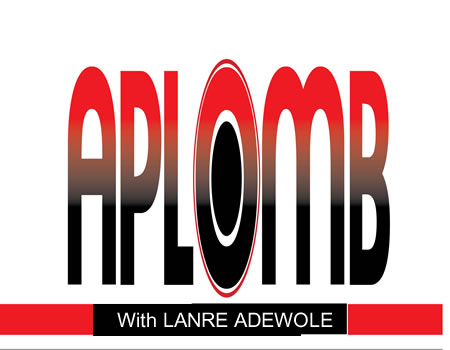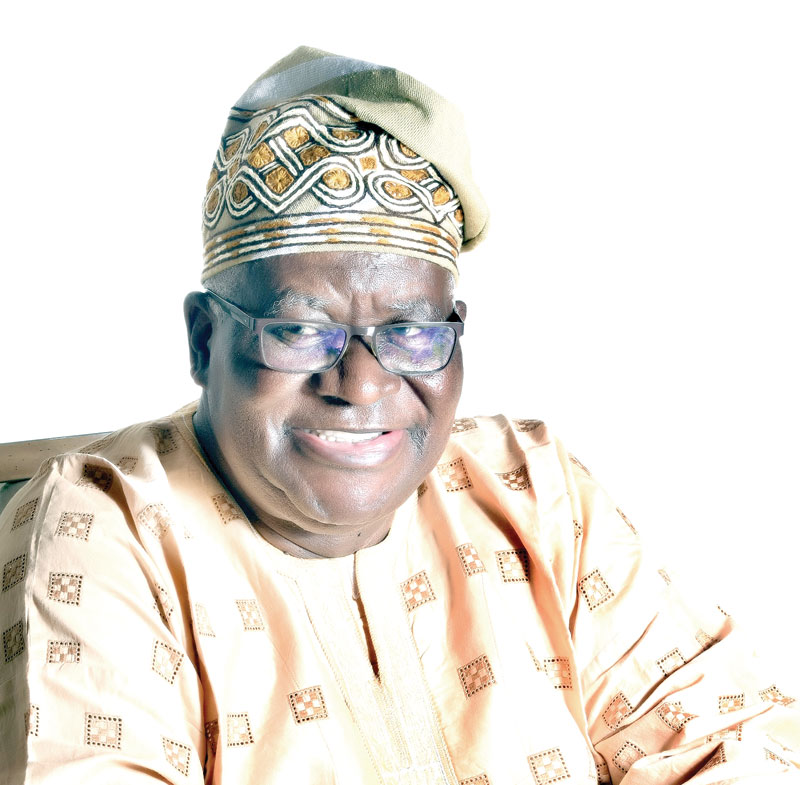In this interview, OLUWASEGUN ILARA spoke with US-based culture enthusiast, Yoruba language promoter and cleric, Apostle Henry Abayomi Odeneye, on efforts made at preserving the Yoruba language in US communities, among others.
MANY are curious about your mission. Can you speak briefly on what you do?
I am the president of Harvest Point Ministries. I use pure Yoruba language to minister and I advocate the use of Yoruba language when ministering in America. The focus is to promote the use of Yoruba language to preach in order to aid cultural relation and integration in the United States of America.
Some people are worried that Yoruba language will soon go extinct. Do you harbour this fear?
UNESCO confirmed that Yoruba is among the endangered languages and that if necessary steps are not taken, our language will soon be out of circulation. When I was in middle school in Ghana, Latin was a compulsory language, and we had a Latin teacher, but today, nobody talks about Latin because it is almost dead; the original language spoken by the tribe of the Lord Jesus Christ has gone into extinction. So, if we are not careful, it will go extinct as predicted by UNESCO because that prediction is based on thorough research and facts.
I did not just take it upon myself to promote the language. I had a call to ministry from God and the instruction was specific. Normally, if one is called into ministry, it will be right to ask God “What ministry are you calling me into? Who are those people you are sending me to? Where is the location of the ministry? When do you want me to start it?” I asked these questions and God told me “your ministry will be based abroad” and that was the beginning. Usually, when an instruction is given by God, the next instruction won’t come until you obey the first one. I was still celebrating my relocation abroad when I had some encounters that served as a warning to me about this language.
Can you share some of the encounters?
The first experience I had was when I travelled to Brazil over 30 years ago for a seminar organised by a company. I was sent to Brazil for a training programme to learn how to be able to sell the company’s product used in harvesting grain. As I got to the airport, the immigration officer who attended to me saw my passport and asked if I was a Nigerian. I said yes. He then asked if I understood Yoruba, adding that he was learning Yoruba because he worshipped Ifa. He also said that in Brazil, they speak and learn Yoruba language and very soon the government will make it a language they learn in schools. That caught my attention. So while I was performing my evening devotion later in my hotel room, the spirit of God reminded me of the various religions with their language attachment. Arabic language attached to Islam and Judaism had Hebrew attached to it. The Holy Spirit warned that very soon Yoruba language would be attached to Ifa, Ogun, Sango, and then asked, “what are we doing about it.”
What did you do from that point?
Thinking about it, it dawned on me that some churches would say no to speaking vernacular during service. If you sing a chorus in Yoruba, the next one must be in English language because they are trying to avoid a situation where the church is turned into a Yoruba church and in our various homes, our parents will say we should not speak vernacular. Remember the Lord told me my ministry will be based abroad. After the call became a reality, I had to relocate to the US with my family. We used Yoruba language to worship because the children are yearning for it in a developed country where you have Nigerians and other Africans. Man is made of body, soul and spirit, so you should be able to use the African language to feed your spiritual being. Most importantly, the first language anyone takes up at birth becomes the foundation of all languages. Rather than communicate in a learned language like English, it is much easier to communicate with God using the language you were born into. I was encouraged and we started the Dagunduro Prayer Family.
And what was the response?
Dagunduro Prayer Family started as a once a month programme in Houston to be precise. Those who attended Dagunduro just once have had reasons to tell others about it. Then we said there was the need to have a Sunday service. So, the Dagunduro Prayer Family gave birth to the Yoruba Christian Fellowship. We meet on Sundays and have our regular service in Yoruba without interpretation. We extended the programme into taking care of social needs of the Yoruba community including dissemination of information from the government, particularly public awareness information on health. During COVID-19 period, there were a lot of publications made to teach the public and educate them about coronavirus. We took it upon ourselves to translate that information into Yoruba language because of the elderly there who read and write in Yoruba because their level of English may not be strong enough to assimilate in English. So, we translated the content to Yoruba for the Yoruba community and addressed them about the dangers of COVID-19.
How big has that idea become now?
Little did we know that the government was watching us. The city of Houston has now formally engaged us, and anytime there is a government programme, they call us in to take care of the Yoruba community. When it was time for politics, candidates also called to engage us, but we tried to achieve balance by making sure that all candidates have equal access to the Yoruba community. The city of Houston, in recognition of our contributions, also declared December 6 as the Yoruba Dagunduro Day. There is a certificate to confirm that. The mayor of Houston then was Earnest Parker. He declared December 6 as Yoruba Dagunduro Day because of our contribution to the encouragement of the use of Yoruba language in Houston.
Do non-Yoruba speaking people also connect?
The reception has been good, particularly within the Christian community. Some of them will ask me to give them Yoruba names. Most of the names will be given according to circumstances of birth such as Kolawole, Abayomi, Olajide, Babatunde and that encouraged me to now produce ministers’ manual to guide ministers. In the manual are a list of Yoruba names for male and female children. So far, I have named 32 African-American children and we look forward to more of that. By the Grace of God, we want to organise a visit to Nigeria. We told the African-Americans and Americans that are willing to know about Nigeria that the history of Nigeria did not start from slavery. We are telling and teaching them that before the colonial masters came to Nigeria, we had kingdoms that were well structured so much that there was no coup. A king is a king, who had his prime minister and ministers and it was a seamless governing body. The kingdom had Balogun, who was the chief of defence staff that also had its own structure of operation. It is part of the thing we will let them know that there’s a history behind Africa before slavery.
Do you have a relationship with those calling for Yoruba self-determination?
Well, I am a pastor so “let thy will be done” is the stand of any pastor. USSR was one country, I don’t know who prayed for the country for how it has turned into today, but that answers the question. I am sure those agitating for Yoruba Nation drew their inspiration from somewhere. You know when it comes to vision, it is only the one that sees the vision that sees it clearly. Others will look like “what is wrong with this man” but those who believe in his vision will remain resolute in its pursuit. I have not seen any vision in that area other than “thy will be done oh Lord.”
It is our understanding that you are planning something big in Nigeria. What is the plan?
It is coming in December even though we have not fixed the date yet because we will need to have our fathers to tell us specifically when most of them will be available. The Ooni of Ife would give us a specific date when his schedule will be clear and if you are running a special programme, you need the presence of the father of all Yoruba, Ooni of ife.
The first day will be for ministration where we will make a clear distinction between the culture and Christianity. There are some aspects of our culture that we need to run back in order to accept it. One of them is dowry. Some of the foundations from Yoruba culture are attached to deities. For example, 42 tubers of yam is Ojilelogoji in Odu Ifa. So we are going to declare that Christian dowry should be 12 tubers of yam representing the 12 tribes of Israel. We want people to practise and promote their culture, without attaching it to deities. We will clean it up. That is the first day. The second day will be called ‘Oba tin gba ‘dobale oba’ (the king that receives the respect of kings) where Yoruba kings including Soun of Ogbomoso, Oba Ghandi Olaoye and Osile of Oke-ona Egba, Oba Adedapo Tejuoso and others will come to bow for the king of kings and then preach Jesus Christ to the world.
…and the grand finale?
The third day is ‘Pepe iyin’ (altar of praise) where we are going to raise an altar of praise, all in Yoruba language. We trust God we will have our father, Ebenezer Obey Fabiyi as the father of the day and gospel ministers like Tope Alabi, Shola Allyson and Yinka Ayefele. The same third day will be award night, where we are going to give recognition to fathers who took the gospel and “indigenised” it like Baba Moses Orimolade Tunolase; Pa Oshoffa; Baba Joseph Babalola; Baba Samuel Adegboyega and Ajayi Crowther, who translated the Bible from English to Yoruba. We are trusting God that we will have corporate and individual sponsors for the programme and it is going to be held in Houston, Texas in the United States of America. You will hear Baba Adeboye, Baba Kumuyi and Baba Oyedepo preach in Yoruba. If they are not able to come physically, we hope to get their recorded videos. The first day is what we will call a conference of Yoruba culture and Christianity. Being a Christian does not deny you the opportunity of celebrating your culture. We will clear all differences about that.





